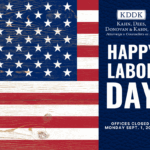[vc_row][vc_column][vc_column_text]This morning, the U.S. Supreme Court issued its decision in Noel Canning (NLRB v. Noel Canning, et al., 573 U.S. ___ (2014)) affirming the U.S. Court of Appeals for the District of Columbia Circuit’s decision that members of the National Labor Relations Board (“NLRB”) were inappropriately appointed by President Obama.
In Noel Canning, the NLRB found that a beverage distributor, Noel Canning, had unlawfully refused to execute a collective bargaining agreement with a labor union. The NLRB ordered the employer to execute a collective bargaining agreement, and make affected employees whole for any losses suffered as a result of the employer’s actions. The employer asked the Court of Appeals for the D.C. Circuit to set aside the NLRB’s order because, according to the employer, the order was issued at a time three of the five NLRB members were invalidly appointed. The three NLRB members in question – Richard Griffin, Sharon Block, and Terence Flynn – were appointed by President Obama in 2012 at a time the Senate was meeting on a pro forma basis.
The President maintained his appointment authority was derived from the Constitution’s Recess Appointments Clause. The employer argued the President’s use of the Recess Appointments Clause to justify this action was too broad and unlawful and, as such, the members in question were improperly appointed. Since the NLRB is required to have three properly appointed members to constitute a quorum, and a quorum is required for it to act, the employer argued the NLRB lacked authority to issue the order. The Court of Appeals agreed.
Although the Supreme Court’s opinion rejects the Court of Appeals’ underlying basis, it agreed with its ultimate conclusion that the Recess Appointments Clause did not give the President the constitutional authority to make the appointments at issue.
This decision is potentially far reaching, as it casts doubt on hundreds of decisions issued by the NLRB during the time it lacked a quorum to act. Many of these decisions curtailed employers’ regulation of social media, implementation of confidentiality policies, and employee discipline. The NLRB has not yet reacted to this decision (other than a very limited statement acknowledging the decision). As such, at this point in time, the full impact of Noel Canning remains to be seen.
If you have any questions as to how these legal developments might impact your business, please contact any member of the KDDK Labor and Employment Law Practice Team.
[/vc_column_text][/vc_column][/vc_row]




